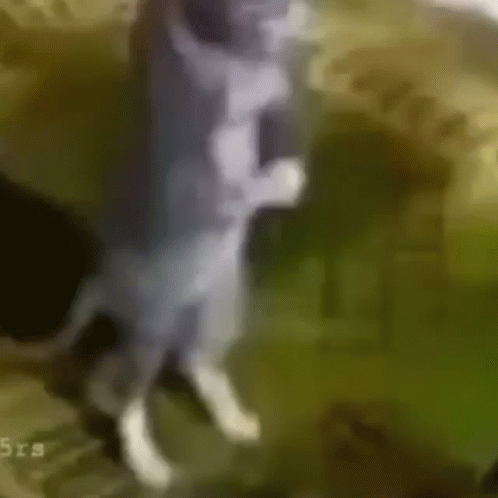An Origin Story
It all began in a conference room not much larger than the average walk-in closet. In fact, perhaps that was the room’s original intended purpose—though that wouldn’t explain the centrally placed windows and its maroon curtains with golden trim. But whether or not this room had once been a walk-in closet was not of consequence; what was of consequence, however, was its inhabitants and their expressed purpose on this eventful day.
A small think tank, named the Friendly Muslims League (or FML), in its embryonic age, had convened to discuss the sad state of affairs that was the public image of the Muslim in modern society. Muslims had suffered a series of public relations nightmares over the past two decades, and as the FML’s mission statement so clearly elucidated, “that is a problem.” There were three of them: Omar, a steely eyed academic in his very late fifties; Noor, a professional political pollster—age unknown; and mhd borhan, a writer (not yet author) and late-stage optimist in his early thirties. As usual, Omar was the first to speak.
“In my studies—which are expansive as you two well know—I have found that the root is often found in ignorance. Man fears what, or, in this case, whom he does not know,” he said, finishing with a self-satisfied nod and glance at his comrades.
“What about women? What do we fear?” asked Noor, her eyebrows nearly reaching the very top of her forehead.
“A salient point, Noor,” responded Omar. “Very salient. Perhaps this is a point in which your professional expertise can guide us.”
“Well, polls would suggest that what women fear most are loud colors, improperly parked cars, and raccoons.”
“Really? How intriguing.”
“Do you really th— ”
“Please,” said mhd borhan, looking at Noor imploringly.
“What?”
“Noor, please. Omar is Omar.”
“Alright, fine,” said Noor, setting down her pen with a sigh. “I’d say people fear what they do know, because once you know then you must act. And after twenty-plus years, not knowing feels pretty willful.”
“Hmmm, salient,” said Omar, looking over the top of his rust-colored, wire-rim glasses.
Noor rolled her eyes.
The room fell into a momentary silence, before—
“Cats,” said mhd borhan.
“What?” echoed Omar and Noor.
“Cats,” repeated mhd borhan.
“So you’ve said,” prodded Noor.
mhd borhan stood up and began to pace the short five steps it took to get around the room.
“Think about it,” he said. “At the end of the day, what we’re really looking at is an image problem.”
“I don’t understand,” said Omar.
“When someone says the word ‘Muslim,’ what immediately pops into people’s heads?”
Neither Omar nor Noor could bring themselves to respond.
“Exactly,” continued mhd borhan. “But cats, people love cats.”
“On the internet, at least,” interjected Noor.
“Yes,” said mhd borhan, picking up a dry-erase marker from the table and approaching the easel whiteboard tucked into the corner of the room. “So we know people love cats,” he continued, writing the last three words in large, bold print.
“Okay,” said Omar, trying desperately to catch up.
“What else do we know?”
“Just spit it out,” groaned Noor.
“Cats. Love. Muslims,” said mhd borhan, punctuating each word with significance as he wrote them.
“And we know this how?” asked Omar.
“The internet…endless videos, especially anything from Turkey.”
“Isn’t it Türkiye?”
“Shut up…no, sorry…yes, Türkiye,”
“Get to it,” said Noor, picking up her coffee thermos and shaking it in desperation for even the hint of a drop. “You’re losing the room, and anyone else who might be following this conversation."
“Who else is there?” questioned mhd borhan, looking around the small room. “The FBI?” he added, picking up a stapler from the middle of the table and looking under it.
“History,” stated Omar importantly. “History is always listening.”
“I don’t know what that means, but sure.”
“Always,” Omar repeated.
“Back to the point—really, it’s simple, if people love cats, and cats love Muslims, then people must also love Muslims,” mhd borhan said, writing the last words with a theatrical flourish.
“But they don’t,” said Noor. “Not really.”
“But they will…when they see this,” said mhd borhan, and he began a very elaborate drawing on the board, now using multiple colored markers, and employing detailed and varied attempts at shading. When he finished, several awkward minutes later, he fell back into his chair, sweat pouring down his face, panting with exhaustion.
“What the hell is that?” asked Noor, shaking her head in amusement.
“What is that?” repeated mhd borhan, his shoulders sagging in disappointment. “It’s clearly a cat hugging a Muslim as he sits on his prayer mat.”
“Of course,” said Omar, nodding.
“Of course?” challenged Noor.
“I think we should trust his judgment,” said Omar, readjusting his glasses. “Have you seen how he spells his name? The man’s either a genius or an idiot, and these days that’s practically the same thing.”
“So, what do you want to do then?” said Noor, twisting her chair to face mhd borhan.
“Oh, I have ideas,” said mhd borhan, and a smile the size of a Cheshire curled across the furthest corners of his face.

